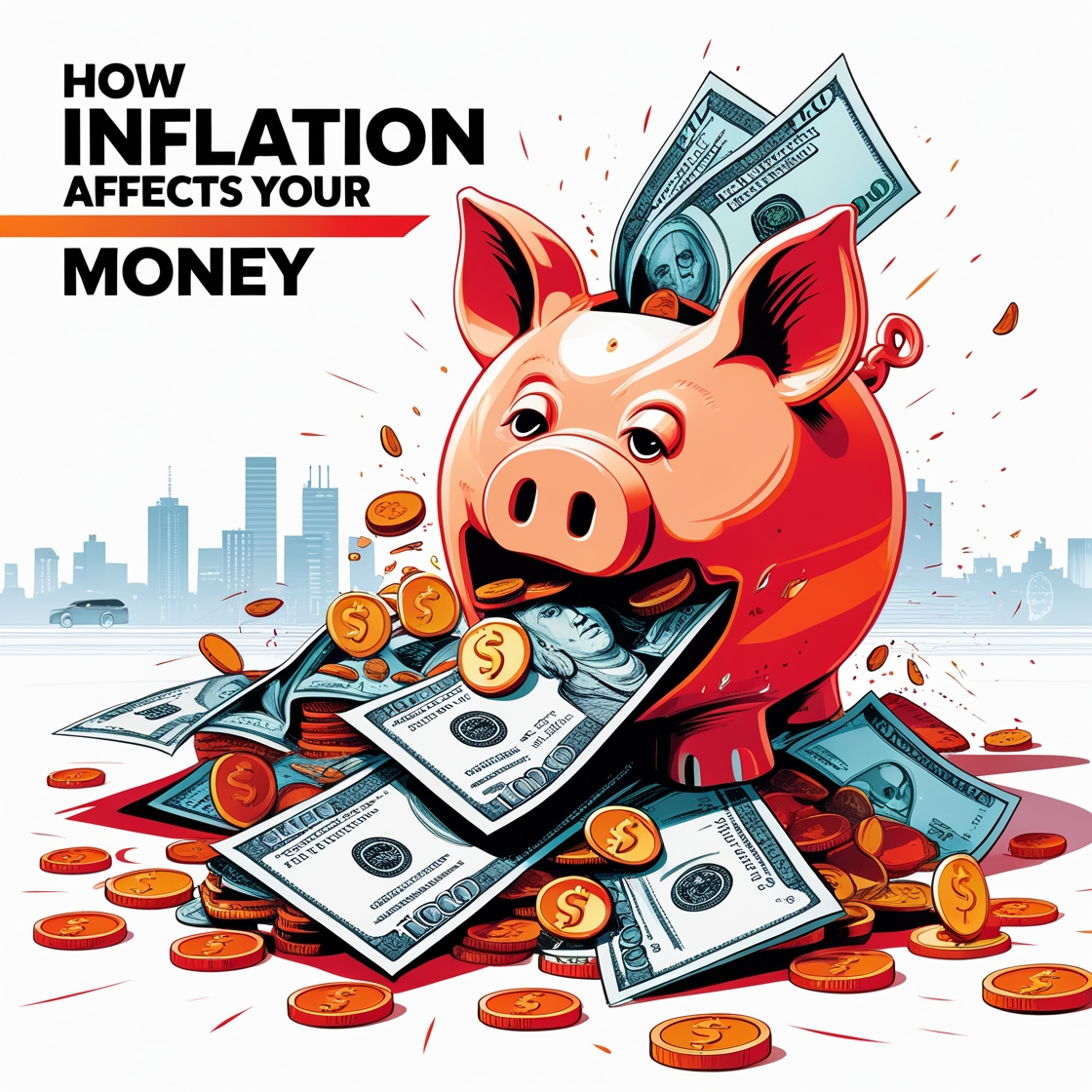
The general price level of goods and services in an economy increases over a period of time, which is called inflation. At times of inflation, every unit of currency costs less, so your money has less purchasing power. It could affect your finances.
Effects of Inflation on Your Money
1. Reduced Purchasing Power
The most immediate effect of inflation is that your money doesn't go as far as it used to. If inflation is 3%, then a USD 100 item today will cost USD 103 next year. This means that over time, more prices make money less valuable, and you can buy fewer goods or services for the same money.
2. Impact on Savings
If interest rates on your savings don't keep pace with inflation, your real savings value will drop. For instance, if your money is in a savings account earning 2% interest but inflation is at 3%, you are losing 1% of your purchasing power every year.
3. Impact on Investments
Inflation can also affect investment returns. If your investment provides no return above inflation, the real value of the investment decreases. Suppose a 4% return on an investment in a 5% inflation environment—that would mean a negative real return of -1%. That's why it pays to own investments that rise above inflation, like stocks or real estate.
4. Wage Growth versus Inflation
If your income doesn't grow at the same rate as inflation, your standard of living will drop. For instance, if inflation drives up your salary, you might not be able to afford the same goods and services you could before—even if you're making the same amount of money—anymore.
5. Central Bank Responses
Central banks respond to inflation by raising interest rates to cool the economy. Rising interest rates could make borrowing more costly, and that might slow spending and investment. High interest rates will drive up the cost of borrowing loans or mortgages.
Protecting Your Money from Inflation
1. Invest in Inflation-Protected Assets
Some investments like stocks, real estate, or Treasury Inflation-Protected Securities (TIPS) are designed to ward off inflation. These can provide returns above inflation.
2. Diversify Your Portfolio
Diversify your portfolio to mitigate inflation risk. Inflation in any area can hurt your portfolio if you hold stocks, bonds, real estate, and commodities.
3. Raise Savings Contributions
To make up for lost purchasing power, raise your savings. Also, consider higher-return investments to preserve and grow your wealth.
4. Look for Long-Term Investments
Stocks and real estate historically outperform inflation over a long period of time, so focusing on those investments could protect your wealth from the effects of inflation.
Understanding inflation and how it affects your finances will help you save, invest, and manage your money to stay in inflationary conditions.